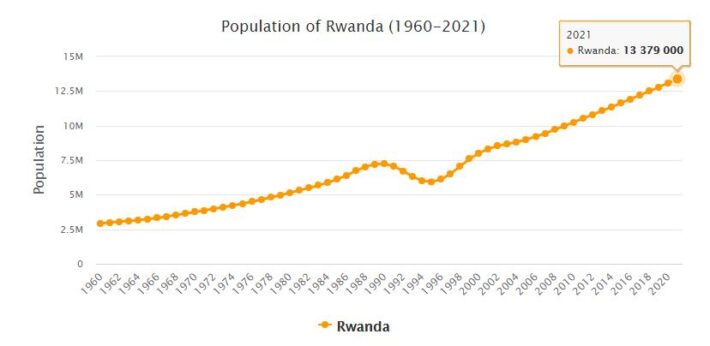Yearbook 2012
Rwanda. Rwanda’s relations with the outside world were complicated during the year by information that the country supported an uprising in neighboring Congo (Kinshasa). Several donors, including the United States, the United Kingdom, the Netherlands, the European Union (EU) and Sweden, withheld some of their assistance. They referred, inter alia, to a UN report in June that pointed to “overwhelming evidence” that high-ranking Rwandan commanders and politicians provided the rebel group Movement March 23 (M23) in eastern Congo with weapons and money in violation of a UN embargo.
The human rights group Human Rights Watch also stated that Rwanda supported M23 and its leader Bosco Ntaganda. Since 2008, he has been wanted by the International Criminal Court (ICC) in The Hague. M23 entered Goma and several other cities in eastern Congo during the year.
Rwanda rejected the information as “baseless”. Despite the criticism, in October Rwanda was elected to the UN Security Council in 2013, which Foreign Minister Louise Mushikiwabo saw as something of an establishment.
- AbbreviationFinder.org: Provides most commonly used acronyms and abbreviations for Rwanda. Also includes location map, major cities, and country overview.
Aid accounts for about 40% of the country’s budget. Finance Minister John Rwangombwa said that if aid is not paid out by the beginning of 2013, economic growth could be hampered. The country’s central bank has previously expected GDP to grow by 7.7% during the year. The head of African Development Bank Donald Kaberuka, himself Rwandan, also warned that the frozen aid could hurt growth in the region.
At a ceremony in June, President Paul Kagame declared that the disputed public courts, gacaca, were wound up. The grassroots courts were established after the 1994 genocide. Despite the shortcomings, they had contributed to reconciliation in the country, he said. The President pointed out that significantly more verdicts were handed down in the grassroots courts and at a lower cost than in the UN Criminal Court (ICTR) in Arusha.
Human rights organizations criticized the gacaca system for suspects having little opportunity to defend themselves.
During the year, the legal settlements regarding the genocide continued, both in Rwanda and abroad.
ICTR issued several life sentences. For example, former Army Captain Idelphonse Nizeyimana was given a life sentence for genocide and crimes against humanity for his role during the genocide. he would have given orders to kill the widow after the last king of the Tutsis. Former Youth Minister Callixte Nzabonimana was also given a life of encouragement and participation in the genocide. He was arrested in 2008 in Tanzania.
The Arusha court also transferred several cases to Rwanda.
In Stockholm, a district court launched a trial in November against a 54-year-old Rwandan-born man suspected of genocide. Parts of the trial were held in Rwanda. A similar case was also tried in Norway, and in Finland the life sentence for another Rwandan man convicted of genocide was set.
Opposition politicians were also sentenced in Rwanda. Opposition leader Victoire Ingabire Umuhoza received eight years in prison in October for terrorism and the genocide. The trial began in September 2011. She alleged, among other things. have transferred money to the Huturebell movement FDLR in Congo (Kinshasa).
The Supreme Court upheld a four-year sentence that was handed down in 2011 for Bernard Ntaganda, leader of the opposition Social Party Imberakuri.
The human rights organization Human Rights Watch criticized these judgments and saw them as an example of how the government uses the judiciary to silence criticism.
The Supreme Court, however, reduced the sentence for two journalists sentenced to long prison terms in 2011. The publisher of the monthly newspaper Umurabyo, Agnès Uwimana Nkusi, received four years instead of 17 years in prison for, among other things. slander, and reporter Saidath Mukakibibi’s seven-year prison sentence was shortened to three years. The court dismissed charges of denial of genocide.
Population 2012
According to countryaah, the population of Rwanda in 2012 was 11,368,960, ranking number 76 in the world. The population growth rate was 2.520% yearly, and the population density was 460.8460 people per km2.
